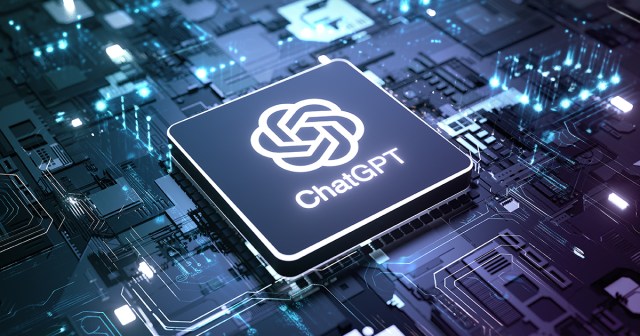
Introduced Nov. 30, 2022, OpenAI’s ChatGPT had one hell of a year, notching more milestones than some startups achieve in the entirety of their existence. But as is the case with every new technology, the not-so-little App That Can (Do Almost Everything) has also generated a number of dustups in its initial year.
Let’s review some of its wins, losses and more ambiguous landmarks.
Win
DALL-E and Midjourney may have kicked off the conversation in Summer 2022, but ChatGPT succeeded in making generative AI a household topic. ChatGPT is miles ahead of other AI assistants in the brand awareness race, capitalizing on first-to-market features, easy name recognition and a number of controversies that kept it in the news.
ChatGPT alone has logged more than 14 billion visits, accounting for about 60% of visits to AI tools, as of August 2023, according to Writer Buddy. Can you say “market leader?”
Loss
The writing is on the wall for stringent interpretations of the fair use doctrine and copyright law. Despite challenges from a number of writers, performers and other creatives, lower courts have ruled that it’s reasonable to use copyrighted material to train LLMs. Exactly what that means is…confusing.
This is a win for ChatGPT, but a serious bummer for those whose blood, sweat and tears will not be compensated or even acknowledged. It may be the way the wind is blowing, but it’s hard not to see this as a disincentive for (human) creators.
It’s a Toss Up
The Biden administration’s executive order on AI. It’s an important first step, but there are too many questions about how regulation will play out to count this as a true win (for OpenAI or for the American public). It may emphasize transparency, but we’re all in the dark about enforcement.
Win(ner)
Sam Altman. The OpenAI CEO may have had, umm, a number of challenges in the fourth quarter, but he is still standing at the helm of ChatGPT’s parent company. This is no small feat, considering the criticisms leveled at his leadership, but it helps to have friends (financial backers) in powerful places (Microsoft).
Also, this drama was a win for the AI industry at large, Mike Beckley argues for Fast Company.
Loss
AI skepticism may persist, but those voices — even those loud and prominent in the tech industry — continue to be drowned out by the latest OpenAI feats. They called for a six-month pause and got accelerated uptakes and new features.
You don’t have to be a Luddite to worry that general artificial intelligence is going to change how we do business and create art. It’s clear that, once again, caution will not win the day in Silicon Valley.
Looking at it another way, I suppose this is a win for techno-optimists, like Mark Andreesen…
It’s a Toss Up
Some of the sticking points of the Hollywood strikes centered on generative AI and synthetic media. It would be easy to put this in the loss column, but any publicist will tell you that there’s no such thing as bad press.
As writers fretted about being replaced in the writers room, the public was introduced to the idea that ChatGPT could do punch-ups. Similarly, actors who worried over their likenesses being used without their permission spread the word that generative AI could be used to make movies with minimal involvement from actual human crews.
It’s a Toss Up
Some of the sticking points of the Hollywood strikes centered on generative AI and synthetic media. It would be easy to put this in the loss column, but any publicist will tell you that there’s no such thing as bad press.
As writers fretted about being replaced in the writers room, the public was introduced to the idea that ChatGPT could do punch-ups. Similarly, actors who worried over their likenesses being used without their permission spread the word that generative AI could be used to make movies with minimal involvement from actual human crews.
Win
ChatGPT is a win for those of us who choose to embrace its capabilities without over-relying on it. Whether you go the centaur or cyborg route, ChatGPT likely has an offering that can facilitate some aspect of your life or your job — and if ChatGPT doesn’t, there are a number of industry-specific AI tools that can help you say goodbye to rotoscoping, for example.
(But it’s only a win if we’re able to recognize ChatGPT’s limitations and hallucinations.)
Loss
This spring, OpenAI joined the dubious ranks of companies who have experienced a major data leak. In March, a bug exploited weaknesses, the company says, to release user information, including chat histories and personal identifiers.
Toss Up
Google was ahead in the race (or at least it was publicly), but now Alphabet is playing catchup and seems to be losing out to OpenAI (and therefore, Microsoft) at every turn. But despite ChatGPT’s headstart, competitors ranging from Meta to startups are finding ways to exploit the desire for the genAI tools.
More Memories <3
If you’d like a more comprehensive look at ChatGPT’s milestones, check out this Timeline of ChatGPT, courtesy of Script by AI. Engadget Senior Editor Andrew Tarantola crafted a human version of that list, emphasizing the more significant (and dramatic) moments.
Also, Creative Media’s Peter Csathy laid out his predictions for ChatGPT’s 2024, writing for The Wrap. A tall order — and I salute him for his bravery in tackling this heretofore unpredictable topic. Csathy writes, “[W]e certainly can anticipate several major developments in 2024 that directly impact the media and entertainment business and how creative works are both developed and monetized.”


